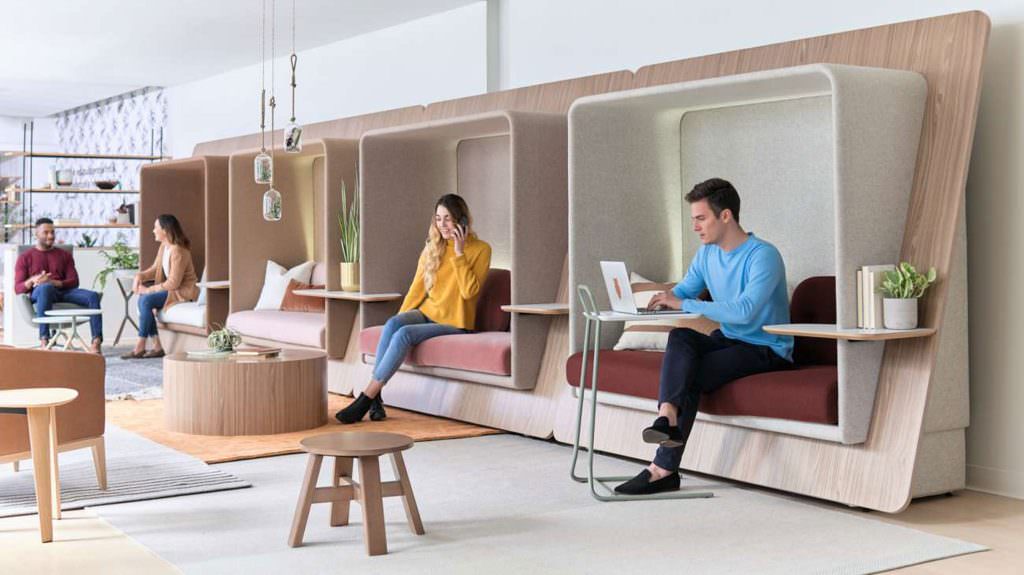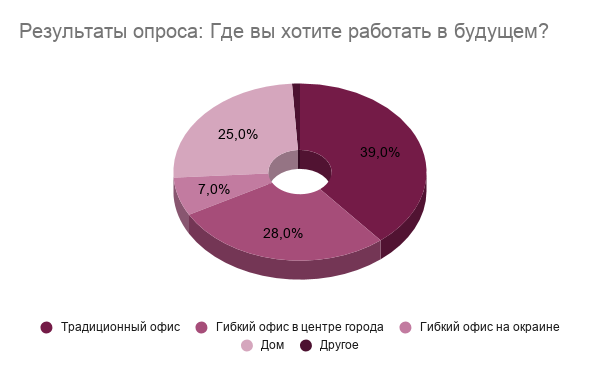


Traditional offices VS coworking. What the future holds for office real estate

2020-02-03
Many global studies over the past 5 years show a decrease in market interest in traditional offices. This is especially true for IT companies and various startups. The former prefer to create flexible offices, that is, mostly open workspaces without associating employees with a specific place, while the latter increasingly choose to work in coworking, since in fact they do not need an office for the entire working week.

One of the latest surveys conducted in Britain among office staff showed interesting results:

Based on the chart above, already 60% of Britons do not want to become attached to the workplace. The freedom to choose a comfortable atmosphere and environment for work looks very attractive. However, the same survey showed that 40% of employees already working in a flexible office would prefer to return to the traditional model of organizing space, while only 29% of respondents agreed that a flexible office increased their productivity. The most effective such offices are IT companies and the financial sector, while consulting companies prefer to use traditional offices.
As for coworking, they become an auxiliary element of the daily workflow. For example, in the United States already 14% of employees working in companies with more than 100 employees, from time to time use coworking to solve work problems. Psychologists confirm that a periodic change in the working environment positively affects the effectiveness of staff and helps to quickly cope with routine work or creative tasks.
In addition, it turned out that the opportunity to choose work in the office or coworking attracted valuable personnel to the company. The main thing is to set boundaries. Most companies that choose this work model allow managers to spend working hours in coworking no more than once a week.
From the foregoing, we can conclude that with the development of technology, the psychology of office work is changing. The possibility of choosing a place for work and gaining new positive experience from the workspace comes to the fore. Also, for a modern person, time is of particular value, and this will significantly affect the choice of place of work.

 FACILITY
FACILITY 